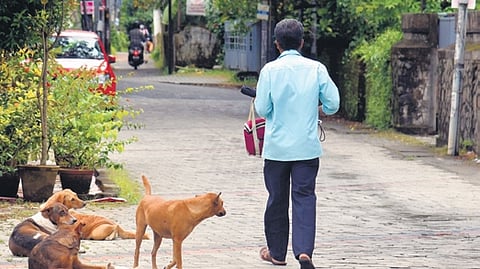

THIRUVANANTHAPURAM: Over one-fourth of stray dog samples analysed at the State Institute of Animal Diseases (SIAD) in Palode, Trivandrum, have tested positive for rabies.
Between April and July, the SIAD tested 57 samples taken from stray dog carcasses from various areas of the state capital, of which 15 returned positive for rabies.
This apart, tests done on the samples of the two dogs that went on a biting spree in Ayurveda College Junction and Vilappilsala recently confirmed that the canines too were rabid. SIAD is one of the state’s five rabies diagnostic centres under the animal husbandry department. Veterinarians frequently send animal carcasses to the institute to confirm or rule out rabies.
Dr Sanjay Devarajan, Disease Investigation Officer at the SIAD, said the extent of the rabies cases was mainly indicative of issues with the Animal Birth Control (ABC) programme. “Recent rule changes have compromised the effectiveness of the ABC programme. The initiative needs to be implemented in a campaign mode to successfully break the breeding cycle,” he said.
T’Puram corporation to enhance anti-rabies steps
The Thiruvananthapuram Corporation, in response to the rise in stray dog attacks, is planning to enhance anti-rabies measures, which includes expanding the ABC programme and vaccination efforts. The civic body has renewed its Memorandum of Understanding with the Compassion for Animal Welfare Association (CAWA) to bolster the vaccination drive. Currently, ABC surgeries are done only in government veterinary hospitals in PMG and Pettah within the corporation’s limits.
A recent survey by the corporation and CAWA found approximately 8,679 strays within the corporation’s limits, of which around 42% were sterilized. However, veterinarians remain cautious. “Several factors might affect vaccine efficacy. Stray dogs often carry significant parasitic loads, which can result in lower antibody levels in vaccinated animals,” Dr Sanjay said.
In addition to dog samples, SIAD received samples of 21 cats, three jackals, one cow and goat each as well as a leopard between April and July for testing.